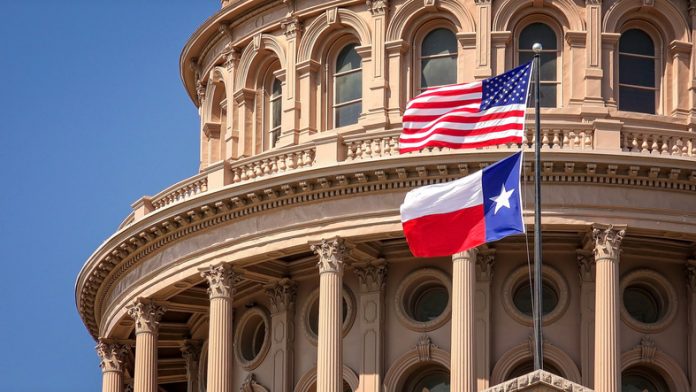In a bid to control the rising cost of health care, Texas has enacted legislation that offers patients and providers more options and recoups losses from Medicaid fraud.
Rising prescription drug prices are targeted by a law that allows Texas to import cheaper pharmaceuticals from Canada, as of September 1.
The Wholesale Prescription Drug Importation Program, HB 25, introduced by Rep. James Talarico (D-Austin), was signed into law by Gov. Greg Abbott on June 12.
Lower Drug Prices
“The program would allow Texas to import low-cost drugs from Canada with ‘tight regulatory safeguards from the FDA,’ according to a press release from Talarico’s office,” KUVE-TV reported on its website when the bill was passed unanimously by the Texas Senate, after the House of Representatives voted for the bill, 144 to 1.
Talarico cites estimates that his bill will save Texans 60 percent to 70 percent on medications like EpiPens, blood pressure medicine, and cancer drugs. Six states have adopted similar policies.
“Texans are choosing between their medications and their groceries—and many of them are choosing to go without their medications,” said Talarico, KUVE reported.
Mark Cuban Option
Merrill Matthews, a resident scholar at the Texas-based Institute for Policy Innovation, says he doubts the drug importation law will have the desired effect.
“No state representative can ensure that the drugs come from Canada, even if they are shipped from Canada,” said Matthews. “And the FDA has no authority to police Canadian drugs and has said so many times.”
“Ironically, Texas’s own Mark Cuban has established the nonprofit Cost Plus Drug Company, which is essentially bypassing the pharmacy benefit management companies (PBMCs) and selling directly to customers at very low prices,” said Matthews. “Cuban’s pharmacy is a much better option than another failed importation scheme, and it’s available now.”
Physician Assistant Licensure Compact
Texas’ rapidly growing population includes licensed physician assistants (PAs) from other states.
Patients could benefit from the PA Licensure Compact (HB 2544), which overwhelmingly passed the House, though the Senate took no action in the regular session of the Legislature.
PAs from states that join the compact will be allowed to practice in Texas without having to go through the license approval process again, and Texas PAs will be able to practice in states that honor Texas licenses.
“Expanding access to physician assistants, especially through interstate compacts, is a much-needed step,” said Matthews. “PAs, working under physician oversight, can address most medical needs, saving the more difficult cases for the physicians. PAs can also fill a gap by providing care to lower-income, uninsured families, often at lower cost.”
Addressing Medicaid Fraud
Texas Medicaid enrollment ballooned during the pandemic, from 3.99 million people in April 2020 to 5.12 million by December 2021.
Lax federal oversight reportedly led to billions of dollars in Medicaid fraud nationwide.
Now that the COVID-19 emergency is over, Texas is cracking down on Medicaid fraud in the Lone Star State. SB 745, introduced by state Sen. Lois Kolkhorst (R-Brenham) was signed into law by Gov. Greg Abbott on May 29. The law expands investigations into Medicaid fraud by the Office of the Attorney General.
‘Should Not … Subsidize Cheaters’
Matthews says that Medicaid fraud in Texas is largely a matter of eligibility.
“Medicaid eligibility changes as people move in or out of state, die, or get employer-provided coverage,” said Matthews. “Eligibility is also changing because pandemic regulations allowed people to remain on the Medicaid rolls who were no longer eligible for coverage. It’s critical that the state examine its rolls and remove those who are no longer eligible.”
Matt Dean, a senior fellow for health care outreach at The Heartland Institute, says fraud hurts individuals who are eligible for Medicaid.
“People who pay for their own health insurance, or receive it as a benefit through their employer, should not have to subsidize cheaters who help themselves to public health care they do not qualify for,” said Dean. “Fraud takes scarce health care away from the needy and gives it to the greedy.”
Bonner Russell Cohen, Ph.D. (bcohen@nationalcenter.org) is a senior fellow at the National Center for Public Policy Research.




















